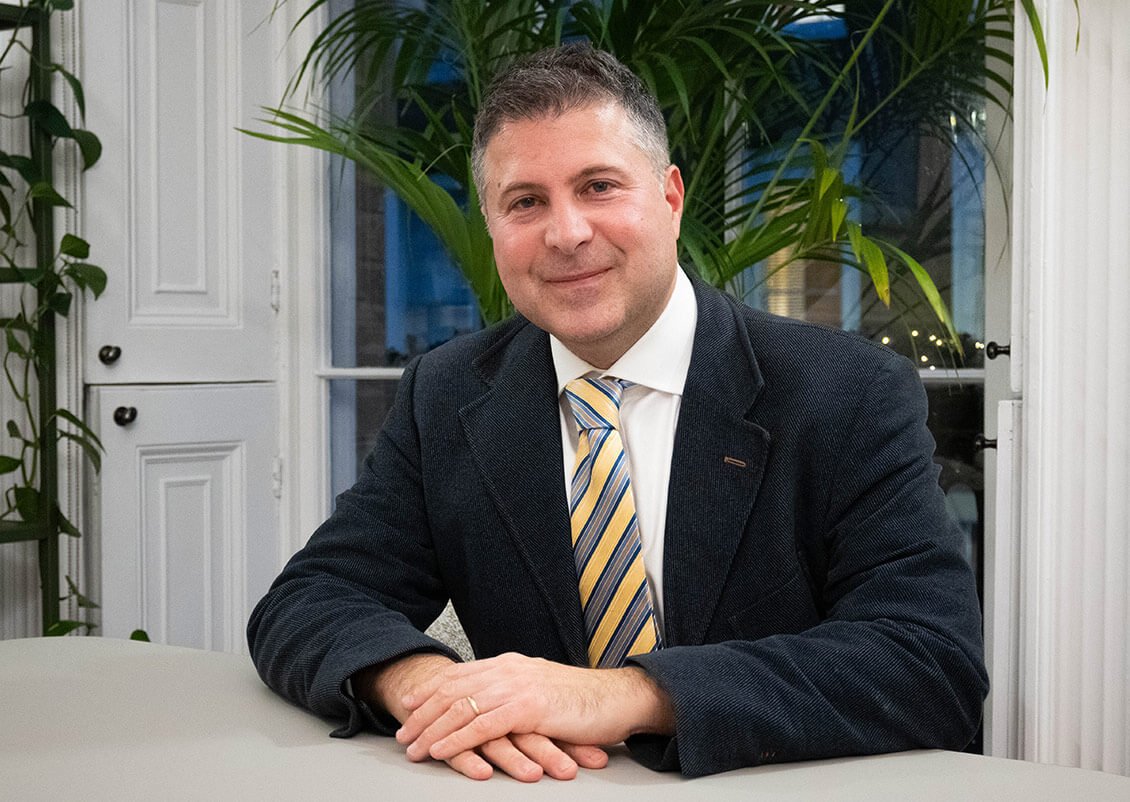The year 2025 marks a turning point in lung cancer care. Advances in systemic therapy, immunotherapy, and precision medicine are offering patients longer survival and better quality of life than ever before.
From new drug approvals to novel combinations of existing treatments, these breakthroughs are reshaping how oncologists approach both early-stage and advanced disease.
In London, where patients have access to leading cancer centres and clinical trials, these innovations are already being applied in everyday practice.
Dr Dionysis Papadatos-Pastos, consultant medical oncologist specialising in lung cancer and other thoracic malignancies, shares an overview of the most promising developments.
 Topics Covered
Topics Covered
 Topics Covered
Topics Covered
New Targeted Therapies Based on Genetic Testing
Genomic profiling has become routine in 2025, allowing oncologists to match treatment precisely to a patient’s tumour biology.
Beyond the well-known EGFR mutations and ALK rearrangement, new targets such as KRAS G12C, HER2, and MET exon 14 skipping are driving approvals of next-generation inhibitors.
These oral therapies are often highly effective and less toxic than traditional chemotherapy.
By identifying the specific mutation through blood-based or tissue testing, patients can now start targeted therapy within days of diagnosis — a major step towards personalised cancer care.
Immunotherapy Combinations Redefining Outcomes
Immunotherapy continues to be one of the most transformative areas of oncology.
In 2025, combination approaches — pairing immune checkpoint inhibitors with targeted drugs or chemotherapy — have shown unprecedented benefits in non-small cell lung cancer (NSCLC).
New data presented at international congresses demonstrate:
- Higher long-term survival rates,
- Improved response durability, and
- The possibility of cure for some patients.
For some individuals, immunotherapy can now induce long-term remission, effectively turning advanced cancer into a manageable chronic condition.
Early-Stage Lung Cancer: Neoadjuvant and Adjuvant Breakthroughs
A major shift in 2025 involves the use of systemic therapies earlier in the course of disease.
Patients with operable tumours are increasingly receiving neoadjuvant chemo-immunotherapy before surgery, helping shrink tumours and reduce recurrence risk.
Adjuvant (post-surgery) immunotherapy is also extending disease-free survival.
This represents a paradigm change — early-stage patients now benefit from the same innovative drugs once reserved only for advanced disease.
Liquid Biopsies and Real-Time Monitoring
Traditional tissue biopsies are slowly being complemented — and in some cases replaced — by liquid biopsies, which detect tumour DNA fragments in the bloodstream.
In 2025, these blood-based tests are used not only for diagnosis but also to monitor treatment response and detect resistance before symptoms appear.
This enables oncologists to switch therapy at the optimal moment, preventing disease progression and sparing unnecessary side effects.
The result: faster, smarter, and more adaptive cancer care.
AI-Driven Treatment Decisions
Artificial intelligence (AI) tools are now assisting oncologists by analysing vast datasets of scans, pathology reports, and genetic profiles.
Machine-learning models can predict treatment response and identify subtle changes in tumour behaviour.
For thoracic oncology, AI helps:
- Detect early recurrence on imaging,
- Personalise radiotherapy planning, and
- Recommend the best drug combinations for each patient profile.
While AI will never replace clinical judgement, it enhances precision and helps deliver the right treatment at the right time.
The Road Ahead: Hope Through Science
Each new discovery brings the medical community closer to one shared goal — long-term survival for more patients.
Advances in 2025 show that even aggressive lung cancers can respond powerfully when treatment is personalised, monitored intelligently, and supported by compassionate multidisciplinary care.
Support and Follow-Up Care
Dr Papadatos-Pastos and his team provide ongoing support beyond medical treatment.
Patients receive clear communication, psychological care and access to nutrition, physiotherapy and symptom-management services.
Regular follow-up ensures early detection of recurrence and long-term wellbeing.

Book a Consultation
If you or someone close to you has been diagnosed with lung cancer, early consultation with a specialist can make a real difference. Appointments are available at several London clinics.
Faq
Answers to Common Questions
The pace of research in lung cancer can be overwhelming. Here are answers to some frequently asked questions about breakthrough therapies and what they mean for patients.
A therapy is considered a breakthrough when it demonstrates significantly improved outcomes compared with existing options — such as longer survival, better response rates, or reduced side effects.
Many are already approved in the UK, while others are accessible only through clinical trials. Your oncologist can advise whether you’re eligible for a specific new therapy.
Not always. In some cases, they complement chemotherapy or are used in combination. The ideal approach depends on tumour type, stage, and molecular profile.
Patients in London can access breakthrough therapies through both public cancer centres and leading private hospitals offering advanced oncology care and research programmes. Dr Papadatos-Pastos works closely with private institutions that provide access to innovative treatments and multidisciplinary expertise, ensuring patients benefit from the most up-to-date therapeutic options available.
Research continues into cell-based therapies, personalised vaccines, and next-generation immunotherapy agents that aim not just to extend survival but to achieve lasting remission.
Dr Dionysis Papadatos-Pastos
Consultant Thoracic Oncologist — MD, MRCP(UK), PhD.
Dr Dionysis Papadatos-Pastos is a consultant medical oncologist specialising in lung cancer, mesothelioma, and thymic tumours. He combines up-to-date, evidence-based treatments with a compassionate, multidisciplinary approach to personalised cancer care. Languages: English, Greek. Consultations: in-person, phone, video.
Key areas:
Lung cancer · Mesothelioma · Thymic tumours
Hospitals & clinics:
The London Clinic — Outpatient Clinic, 116 Harley Street, London W1G 7JL.
LOC — Leaders in Oncology Care (HCA UK) — 95–97 Harley Street, London W1G 6AF.
Cromwell Hospital — 164–178 Cromwell Road, London SW5 0TU.
Professional profiles:

